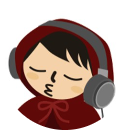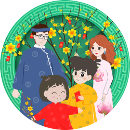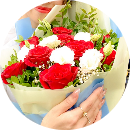❺ WRITING
I. Complete the conversation with the given phrases or your own ideas.
forty-one dollars | blue | these pants | this jacket |
thirty-six dollars | these shorts | brown | (a) medium (size) |
(a) large (size) | extra large | twenty-seven dollars | green |
A: Hello. Can I help you?
B: Do you have________________ in________________?
A: Sorry, we only have________________ in________________.
B: OK. I like the________________ ________________.
Do you have________________ in________________?
A: Yes, here you are.
B: Can I try ________________on?
A: The changing room is over there.
Is it OK?
B: Yes, how much________________?
A: ________________ ________________.
II. Write a paragraph about a famous dish from Italy. Use the information below to help you. Write 50 to 60 words.
- Spaghetti Bolognese-Italy
- kind of noodle dish with meat sauce
- tomatoes, herbs, beef, onions-cheese on top
- delicious-people all over the world love it
………………………………………………………………………………………………………………………………………
………………………………………………………………………………………………………………………………………
………………………………………………………………………………………………………………………………………
………………………………………………………………………………………………………………………………………
………………………………………………………………………………………………………………………………………
D. FURTHER PRACTICE
I. Use the “present simple or present continuous tense” to complete the sentences.
1. The train ______________ at 9 at night. (arrive)
2. Giovanni ______________ to spend the weekend with us. (come)
3. What time __________ you __________ to fireworks competition on Wednesday? (go)
4. What time __________ the film __________? (start)
5. __________ the concert __________ at 7 or 8? (begin)
6. We ______________ a dinner party on Friday and we want to invite you. (have)
7. Most shops in Spain ______________ until 10 am. (open)
8. What time __________ the horse racing __________? (finish)
9. Where__________ you __________ in Bangkok? (stay)
10. My taekwondo classes______________ next week. (start)
11. Our flight______________ in London at 4 o’clock in the afternoon. (land)
12. Everything’s arranged. We______________ house this Saturday. (move)
13. We ______________ at the museum this afternoon at four. (meet)
14. I’m sorry. I can’t meet up this weekend. We______________ to Wales. (go)
15. We ______________ the gardening at 6 tomorrow morning. (do)
16. This is a terrible film Tony! When __________ it ___________? (finish)
17. The library ______________ in five minutes and I have four books to return. (close)
18. After this lesson, I ______________ a friend at McDonald’s for a burger and a chat. (see)
19. __________ you __________ your motorbike tonight? I want to borrow it. (use)
20. The plane ______________ at 10 am. (leave)






















